Good morning, RU! It is my great pleasure to introduce one of my all-time favorite authors Teresa Medeiros. Even though Teresa’s favorite pastime is playing with her cats (and new puppy!) and eating cupcakes, that’s not how she won her New York Times and USA Today bestselling author crowns. Nope, her sparkling bestsellerdom titles appeared when her fans couldn’t get enough of her charming wit, adventurous characters, and engaging romance. Plus, her tweets are a hoot!
Teresa’s generously offering one commenter a copy of her latest release THE PLEASURE OF YOUR KISS. Please help me welcome my new Twitter pal, Teresa Medeiros!
“Oh Clarinda, have you seen the latest edition of The Snitch? I picked up one at the docks before we sailed and there’s an absolutely delicious article about Captain Sir Ashton Burke!”
Gotcha!
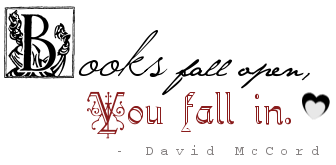
So begins my new novel THE PLEASURE OF YOUR KISS. This simple snippet of dialogue is supposed to stir the reader’s imagination by introducing several questions:
1). Who is the gushing speaker?
2). Who is Clarinda and why should she care about the doings of Captain Sir Ashton Burke?
3). Why are they on a ship and where is it headed?
4). What naughty things has this mysterious captain been doing to end up in a periodical with a title as nefarious as The Snitch?
The opening scene of your romance should be put to the following three tests:
1). Does it pose a burning question that can only be answered if the reader keeps turning the pages?
2). Does it give the reader the sense that in a single moment, your character’s fate is about to be changed forever? That Alice is getting ready to tumble down the rabbit hole?
3). Can you visualize your opening scene on a movie screen? And if so, would you be willing to plop down $7.99 at the box office to find out what happens next?
If you can answer “yes” to all of these questions, you’re well on your way to success. It’s your first scene that may very well sell your first book, whether to an editor or to a reader. If you were an actor, your opening scene would be your audition. Welcome to Short Attention Span Theater!
Just like an intrepid reporter, you should always strive to answer the Five W’s in your first chapter—Who? When? Where? Why? and What? Answering WHO introduces the reader to your characters. Answering WHEN and WHERE provides a vibrant sense of time and place, which is no less important in a contemporary than a historical. Answering WHAT should involve action of some kind and answering WHY sets the stage for those twin essentials of any successful book—conflict and motivation—which breaks down to determining exactly what your characters want and just who or what is going to try to stop them from getting it.
The trick is to answer all of these questions without oversaturating the reader and bogging down the storyline. The most common mistake beginning writers make is trying to cram too much background information into the first few scenes of a novel. In the opening scenes, you don’t have to introduce the reader to every character, nor do you have to set up every subplot or every motivation.
Your opening should be a seduction, a gentle tease promising pleasures to come. Even in a romance, an aura of mystery is essential. If everything is neatly laid out on page one, the reader has no motivation to turn to page two. If your hero has been imprisoned unjustly for a number of years, as Gerard was in my novel THIEF OF HEARTS, isn’t it enough to have him light a lamp in Chapter One because he hates the dark? The reader doesn’t have to learn WHY he hates the dark until he confesses all to the heroine in Chapter 17.
As long as your opening passes the three tests we mentioned above, there’s no set formula for deciding how to start your story. You can use snippets of dialogue, adventure or action sequences, a passionate conflict between key characters, or an intriguing character tag. When I finished my book BREATH OF MAGIC, I had no idea there was going to be a sequel. But I woke up one morning mumbling, “Tabitha Lennox hated being a witch. The only thing she hated more than being a witch was being a rich witch.” And I knew then that I’d found my opening line for my next book.
You may choose action as the key element to start your story. In the opening of THE DEVIL WEARS PLAID, Emma is standing at the altar about to wed the man of her dreams. Or at least that’s what I lead the reader to believe. When a band of dangerous Highlanders storm the chapel, we realize she’s about to marry the man of her nightmares and it’s the man of her dreams who will abduct her from his arms.
The most successful opening scenes have one thing in common—something happens! This may sound pretty basic to you, but I’ve read many contest entries where absolutely nothing happens in the first few scenes. The writer begins the book with the mundane details of life—the heroine wakes up, yawns, climbs out of bed, brushes their teeth, makes the bed, stumbles into the kitchen, fixes some cereal, feeds the cat, changes a light bulb, then ten pages later, the phone rings so their lawyer can tell them their presumed dead scoundrel of an ex-spouse has just returned from beyond the grave to rob them of the million dollar inheritance left to them by their great-Aunt Tilly. Well, guess what? Who cares? The editor has already tossed the manuscript onto the REJECTED pile and the reader checking out the sample chapter on her Kindle has already decided not to hit the BUY button and has bought Nora Robert’s 1200th book instead. The story should start when the phone rings.
What truly makes a story a page turner and a bestseller is a strong sense that the story is happening as it’s being read. And that quality is never more important than at the beginning of that story.
There are four unspoken words at the beginning of every book: Once upon a time… If you can make your reader hold their breath in anticipation as they await the rest of the story, then your own happy ending may be just around the corner!
Link via
Romance University












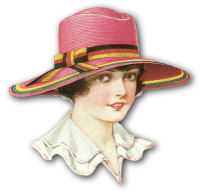


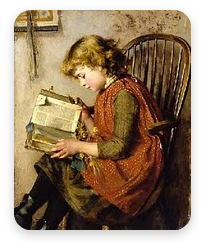
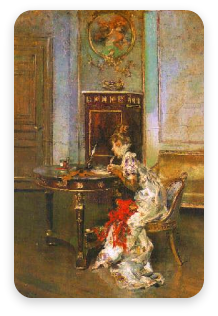


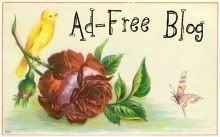




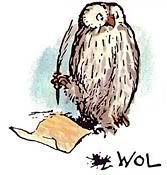







1 comment:
Hello Kristin,
Fabulous post! I loved reading every word!
Thank you so much for posting this about Theresa!
Hugs,
Terri
Post a Comment